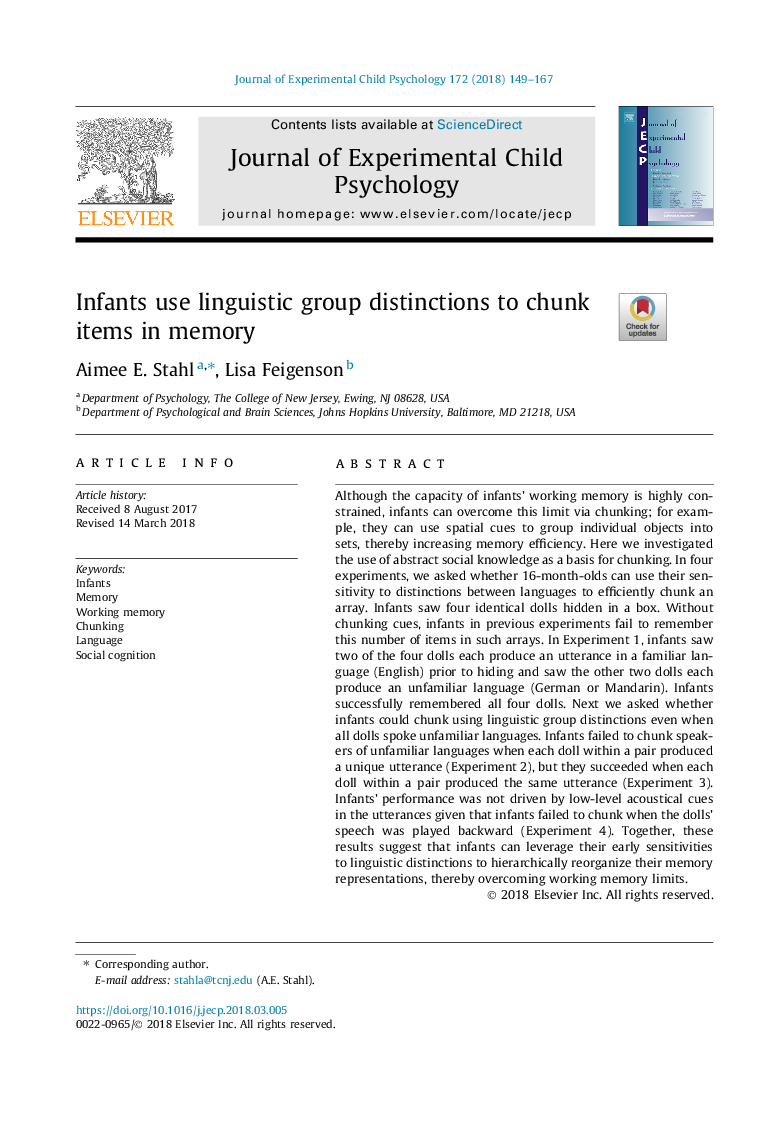| Article ID | Journal | Published Year | Pages | File Type |
|---|---|---|---|---|
| 7273931 | Journal of Experimental Child Psychology | 2018 | 19 Pages |
Abstract
Although the capacity of infants' working memory is highly constrained, infants can overcome this limit via chunking; for example, they can use spatial cues to group individual objects into sets, thereby increasing memory efficiency. Here we investigated the use of abstract social knowledge as a basis for chunking. In four experiments, we asked whether 16-month-olds can use their sensitivity to distinctions between languages to efficiently chunk an array. Infants saw four identical dolls hidden in a box. Without chunking cues, infants in previous experiments fail to remember this number of items in such arrays. In Experiment 1, infants saw two of the four dolls each produce an utterance in a familiar language (English) prior to hiding and saw the other two dolls each produce an unfamiliar language (German or Mandarin). Infants successfully remembered all four dolls. Next we asked whether infants could chunk using linguistic group distinctions even when all dolls spoke unfamiliar languages. Infants failed to chunk speakers of unfamiliar languages when each doll within a pair produced a unique utterance (Experiment 2), but they succeeded when each doll within a pair produced the same utterance (Experiment 3). Infants' performance was not driven by low-level acoustical cues in the utterances given that infants failed to chunk when the dolls' speech was played backward (Experiment 4). Together, these results suggest that infants can leverage their early sensitivities to linguistic distinctions to hierarchically reorganize their memory representations, thereby overcoming working memory limits.
Related Topics
Social Sciences and Humanities
Psychology
Developmental and Educational Psychology
Authors
Aimee E. Stahl, Lisa Feigenson,
